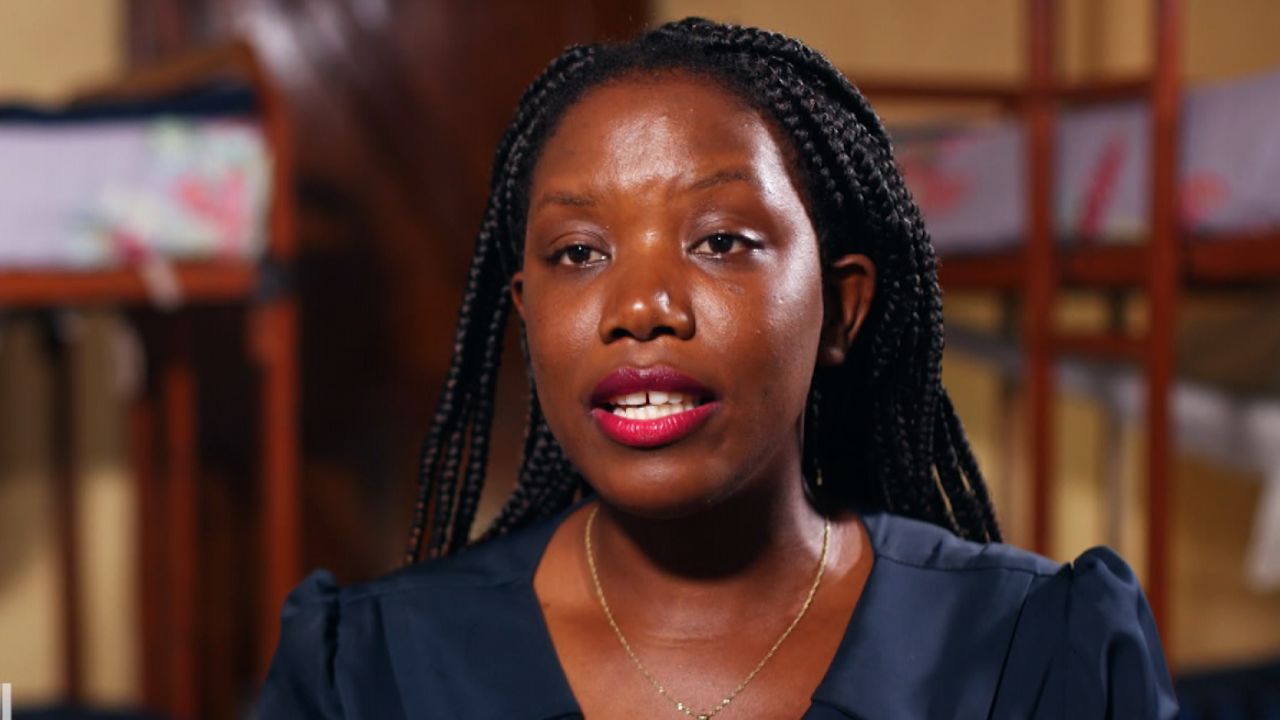
Finding a brighter future for Tanzania’s child domestic workers
SMM ALIPAYUS Mar 18, 2023 World
Mercy Esther was eight years old when she left home.
Raised by her grandmother in rural Tanzania, Mercy Esther and her siblings were born into poverty, sometimes without money for food, let alone schoolbooks. When their grandmother was approached with a job offer for Mercy Esther in Kenya, and the promise that money would be sent home, she accepted. The money could help Mercy Esther’s siblings. They might have a better future.
The job offer turned out to be a lie – the first of a string of broken promises that would deprive a young woman of her childhood and her family.
Mercy Esther was born with a deformity in one foot, causing a pronounced limp. On the streets of Nairobi she and other children were forced to beg. She was told to pretend she could not walk, to elicit sympathy from the public. Each day, what money she collected was taken from her.
One day, while begging, Mercy Esther was approached by a woman who offered her domestic work and more promises: a new home, a wage and good treatment. She went with the woman, but instead Mercy Esther was abused and received no money for her labor. It would be six years before she ran away.
More from the CNN Freedom Project
With the support of the Nairobi police and Kenyan and Tanzanian governments, Mercy Esther returned to the country of her birth, but without details of the village where she was raised, authorities put her in the care of WoteSawa Domestic Workers Organization, which runs a shelter for trafficked children in Mwanza, on the shores of Lake Victoria, in the north of the country.
“All are equal”
“Tanzania is a beautiful and a peaceful country, but there is a dark side,” said Angela Benedicto, the organization’s founder and executive director.
“Many people live in poverty, and forced labor is a very big problem,” she added. “The most common form of human trafficking in Tanzania is domestic servitude, young girls forced into domestic work. They face abuse, exploitation, and are not paid for their work.”
Around one million children – mostly girls – are engaged in domestic work in Tanzania, according to the non-profit Anti-Slavery International.
WoteSawa was set up in 2014 and every year takes in around 75 children who have escaped trafficking. Space is tight: children sleep two to a bed. Some stay longer than others, says Benedicto, particularly those involved in criminal cases, as prosecutions can take time. So far, the non-profit has helped hundreds of survivors, but the needs are greater than the resources available. Benedicto dreams of building a bigger haven for more children.
Her mission is to empower domestic workers and advocate for their rights. It’s an issue that’s close to her heart; she is herself a former domestic worker. “I faced abuse and exploitation, but I was able to speak out,” she explains. “Many domestic workers, they can’t speak out. Who is going to speak (for) them?”
“I’m using my story to tell them, ‘Don’t give up.’”
WoteSawa means “all are equal” in Swahili. At the shelter children are housed and provided with counseling and legal support. They also receive an education in literacy and numeracy, and vocational skills such as needlework. Reintegrating children back into education works in step with efforts to reunite children with their loved ones, “so that when they go back to their families, they can help not only themselves, but they can help their families,” said Benedicto.
Fighting trafficking through education
Lydia lives in the Ngara district in the mountains of Western Tanzania. She left home to become a domestic worker aged 16, but was beaten by her employer and not paid for her work. She escaped and was helped by WoteSawa, where she learned how to sew. Lydia returned to her family with a sewing machine provided by WoteSawa and today she is a dressmaker with dreams of a shop of her own.
Silk slaves: Indias bonded laborers are forced to work to pay off debts
“She is making enough money to provide for her family,” said Benedicto. “Her dream is to help other young girls to know how to sew. She has a plan to give back to the community.”
As well as helping survivors of trafficking, WoteSawa works to prevent it from happening. Benedicto coordinates with bus depot agents on the lookout for young children, and with local police who have powers to intervene.
“My mission is to make sure (the) offense of human trafficking is stopped – totally. And it is through education we can achieve (that),” said police commander Juma Jumane. “We have to educate families. We have to educate the victim, him or herself. We have to educate also society in general.”
“Her future is bright”
When Mercy Ester arrived at the shelter she was reluctant to share the name of her village because she feared being trafficked again if she returned there. But eventually she changed her mind.
CNN met Mercy Esther through the Poland-based Kulczyk Foundation, which supports WoteSawa.
WoteSawa was able to find her family, and took her grandmother and siblings to the shelter. It had been eight years since they had last seen each other. “It was so emotional,” said Benedicto. “They cried, they hugged. I think every one of us was so emotional. We were in tears of joy.”
Mercy Esther is still uncomfortable with the idea of returning to her village and has chosen to stay at the shelter until she is older, and skilled enough as a seamstress to start a business to help provide for her family.
“Her future is so bright,” said Benedicto. “I can see that she will be a light to her siblings.”




